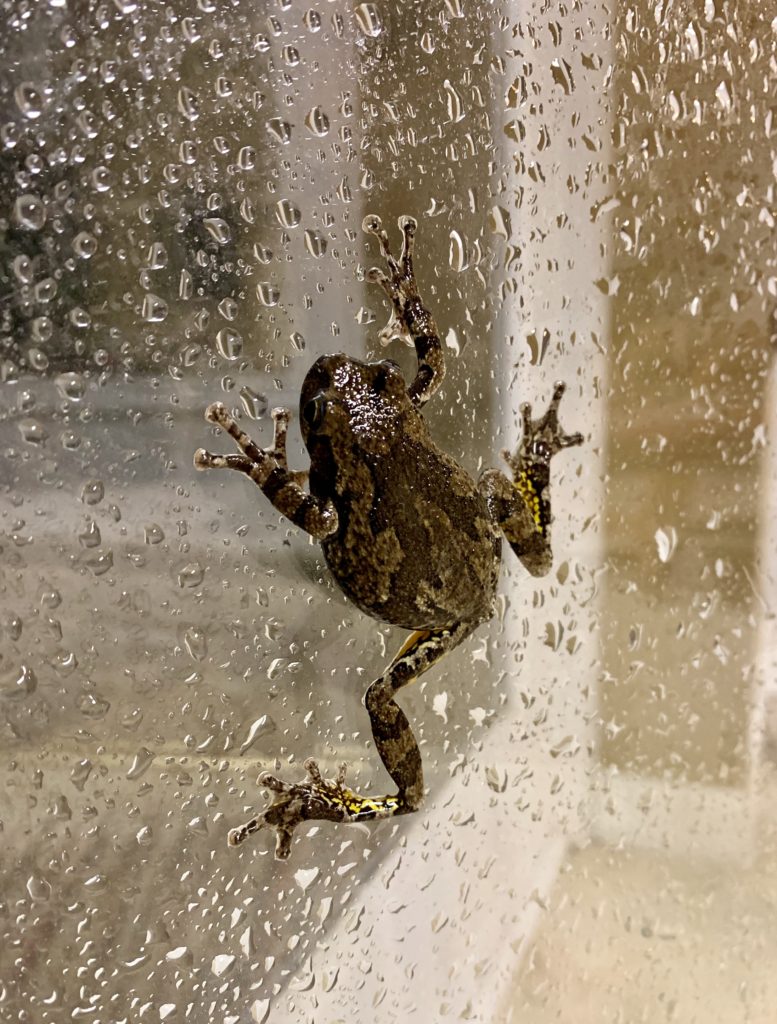Trivia Tuesday: Animal Eyes!

Instead of trying to identify one animal that has the best eyes overall, we’re breaking it up into categories: underwater vision, night vision, color vision, best visual field, and range of vision. Who are our gold medal winners?
Best Underwater Eyesight
We can see pretty well on land, but underwater, everything gets blurry fast.
Not so for…..
sharks.
Thanks to the tapetum lucidum (a mirror-like layer behind the retinas that reflects light back and gives the retina a second chance to see something), sharks can see clearly even in dark or murky water, which is a big part of what makes them effective predators.
Best Night Vision
The gold for night vision goes to owls.
These nocturnal predators have large eyes with five times the rod density of human eyes and a tapetum lucidum on top of that. Their swiveling heads give them 270° visibility. These factors combined allow them to spot small prey across long distances in very low light.
Night Vision Runner Up
An honorable mention in the night vision category should go to frogs.
They might not be able to see as far or as sharply as owls, but they’re possibly the only animals that can see color in near-total darkness.
The reason they can do this is that they have two different types of rods, which create contrast just like our three types of cones.
Most Superior Color Vision
Frogs can see color in the dark, but the gold medal for best color vision definitely goes to the bluebottle butterfly.
These beautiful insects have a whopping 15 different types of cones: one stimulated by ultraviolet light, another by violet light, three by slightly different blue lights, one by blue-green light, four by green light, and five by red light.
Amazing!
Broadest Field Of Vision
One of the animals with the widest field of vision and the fewest blind spots? The chameleon.
A chameleon’s eyes work like turrets, each one moving independently for an incredible combined 360° visibility.
Chameleons use this ability to stalk and catch bugs; their eyes lock onto a single target, then they strike with their long extendable tongue.
Farthest Range Of Vision
Last but not least, the winner in the range of vision event: the eagle.
We consider 20/20 vision to be perfect for us, but even at the lower end, eagles clock in at about 20/5 — four times better.
At the upper end, their vision can be as good as eight times better than ours.
An eagle perched on top of a 10-story building could see an insect crawling on the sidewalk below.
How Does Human Vision Compare?
All of these animals have incredible eyesight in one way or another, but what we humans lack in fancy features like the tapetum lucidum and a wider range of color vision, we make up for in sharp detail vision and more room for our large brains.
Human eyes were designed to do exactly what we need them to, and modern technology helps make up for those of us who develop eye conditions.
Think your vision could be sharper? Click here to request your appointment with one of our doctors.
